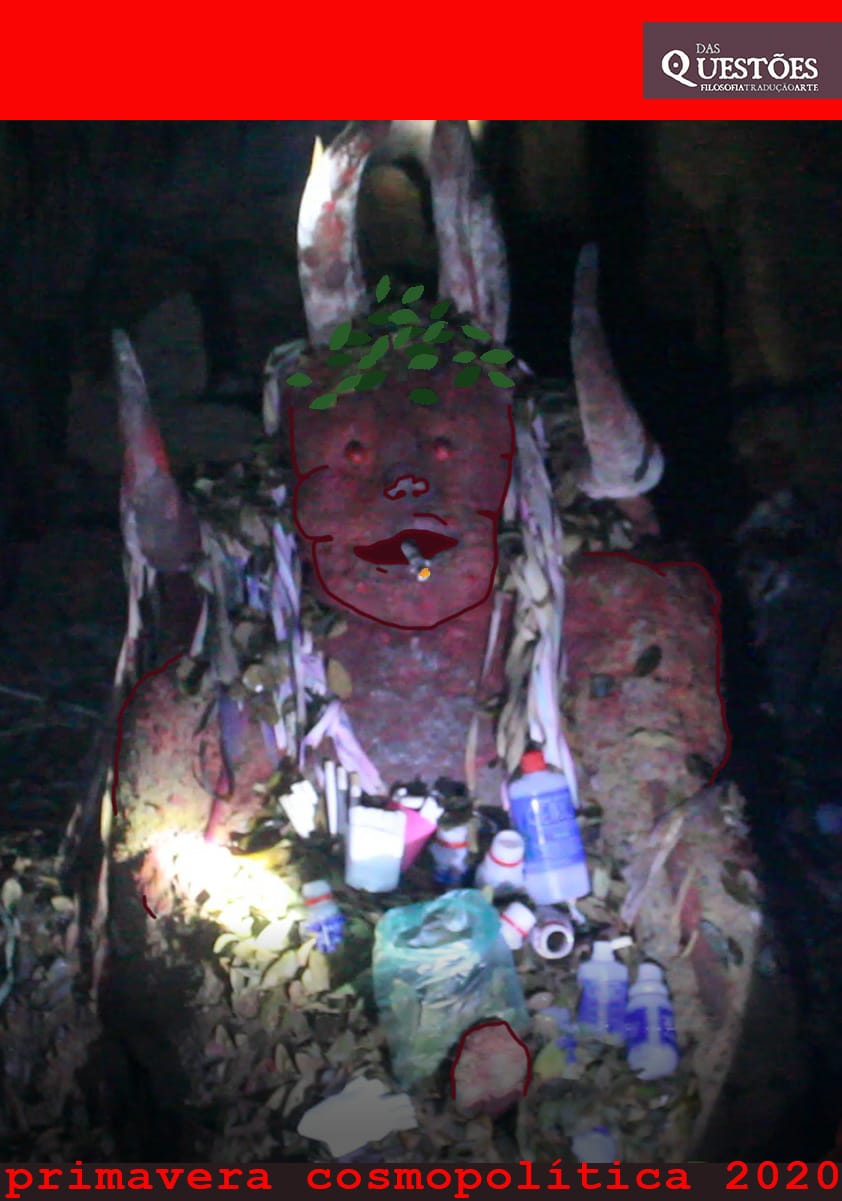EMANCIPAÇÃO PELA EXPANSÃO DA INTELIGIBILIDADE - OU DO PROGRAMA PERMANENTE DE COLONIZAÇÃO DO PENSAMENTO
Main Article Content
Abstract
O objetivo da comunicação é apresentar a crítica ao universalismo hegeliano por meio das formulações neorracionalistas do filósofo iraniano Reza Negarestani. A partir do seu inumanismo é possível vislumbrar a reedição do projeto emancipatório por meio da tese da maior autonomia cognitiva (teórica e prática) inscrita na sociabilidade semântica e linguística de uma comunidade racional (seja a de humanos ou máquinas). Brevemente, teceremos algumas considerações sobre a tese de um programa permanente de colonialidade do pensamento advindo da adoção negarestaniana das prerrogativas principiológicas do solo epistêmico iluminista.
Downloads
Article Details

This work is licensed under a Creative Commons Attribution-NonCommercial 4.0 International License.
Authors who publish in this journal agree to the following terms:
Authors maintain the copyright and grant the journal the right of first publication, the work being simultaneously licensed under the Creative Commons Attribution License which allows the sharing of the work with recognition of the authorship of the work and initial publication in this journal.
Authors are authorized to take additional contracts separately, for non-exclusive distribution of the version of the work published in this journal (eg publish in institutional repository or as a book chapter), with acknowledgment of authorship and initial publication in this journal.
Authors are allowed and encouraged to publish and distribute their work online (eg in institutional repositories or on their personal page) at any point before or during the editorial process, as this can generate productive changes as well as increase the impact and the citation of the published work.
References
BENSUSAN, Hilan. “zwischen Strom und Gestein”. In Os humanos e a pan-política dos vírus (2020a).
BENSUSAN, Hilan. Geist and Ge-Stell. Beyond cybernetic convergence of intelligence and the unity of normativity (2020b).
BORSANI, María Eugenia. Cosmopolítica como afrenta al narcisismo occidental. In. In. DasQuestões, Vol.8, n.2, abril de 2021.p. 3-10.
BRAIDOTTI, Rosi. The Posthuman. Cambridge, Polity Press, 2013.
CASTRO-GÓMEZ, Santiago; Grosfoguel, Ramon, editores. El girodecolonial: Reflexiones para uma diversidad epistémica más allá del capitalismo global. Bogotá: Siglo del Hombre; Universidad Central; Instituto de Estudios Sociales Contemporáneos; Instituto Pensar, 2007.
DUSSEL, Enrique. Europa, modernidade e eurocentrismo. In: Lander E, organizador. A colonialidade do saber: eurocentrismo e ciências sociais. Buenos Aires: CLACSO, 2005. p. 55-70.
FEDERICI, Silvia. O Calibã e a Bruxa: Mulheres, Corpo e Acumulação Primitiva. São Paulo: Elefante, 2017.
FIRESTONE, Shulamith. A Dialética do sexo. Coleção Bolso.
LE, Vincent. Spirit in the Crypt Negarestani Vs Land. In Cosmos and History: The Journal of Natural and Social Philosophy, vol. 15, no. 1, 2019.
MBEMBE, Achille. A universalidade de Frantz Fanon. Disponível em: https://profedmarcb.files.wordpress.com/2018/06/mbembe-achille-a-universalidade-de-frantz-fanon.pdf
MIGNOLO, Walter. Histórias locais/projetos globais: colonialidade, saberes subalternos e pensamento liminar. Belo Horizonte: Editora da UFMG, 2003.
MIGNOLO, Walter. Introducción. In: Henry, Paget. El color de la razón. Henry Paget; Santiago Castro Gómez; Eze Chukudi; Compilado por Walter Mignolo – 1ª Ed. – Buenos Aires: Del Signo, 2008.
NEGARESTANI, Reza. Intelligence and Spirit. Urbanomic, 2018.
RIVERA, Cusicanqui Silvia. Ch’ixinakaxutxiwa. Una reflexión sobre prácticas y discursos descolonizadores. Buenos Aires: Tinta Limón, 2010. Pinturas. 80 pp.
SOUSA SANTOS, Boaventura de. O fim do império cognitivo: as afirmações das epistemologias do Sul. Belo Horizonte: Autêntica Editora, 2019.
VALENTIM, Marco Antonio. Extramundaneidade e sobrenatureza: ensaios de ontologia infundamental. Cultura e Bárbarie, 2018.
VATTIMO, Gianni. O fim da modernidade; niilismo e hermenêutica na cultura pós-moderna. São Paulo: Matins Fontes: 1996.
VIVEIROS DE CASTRO, Eduardo. Metafísicas canibais: Elementos para uma antropologia pós-estrutural. São Paulo: Cosac Naifiy, 2015.

